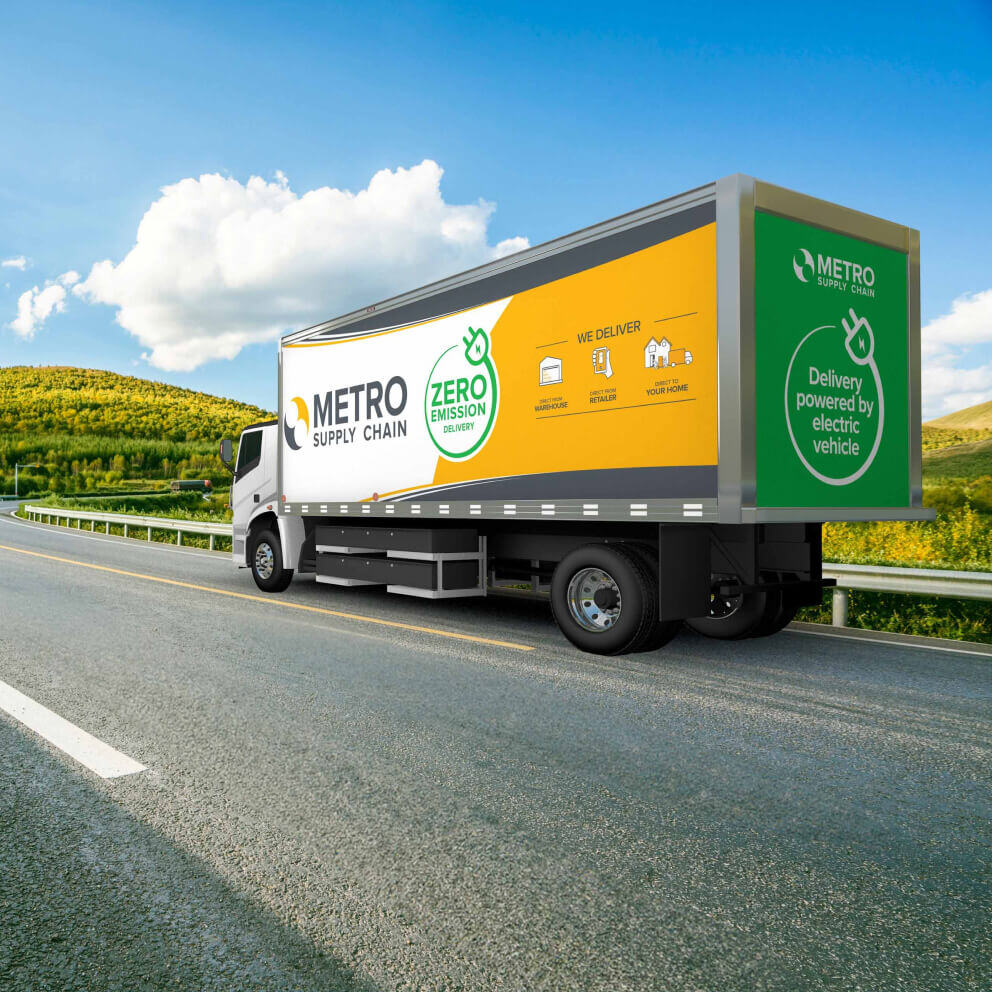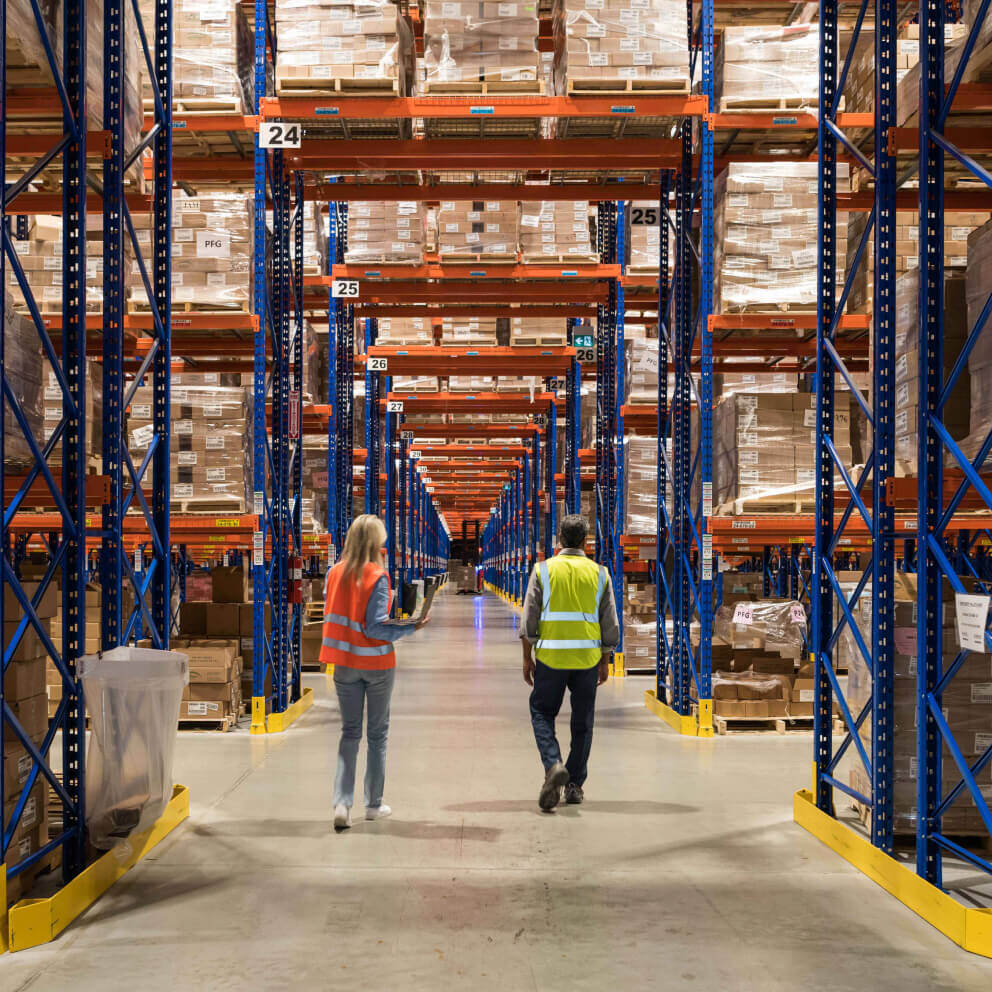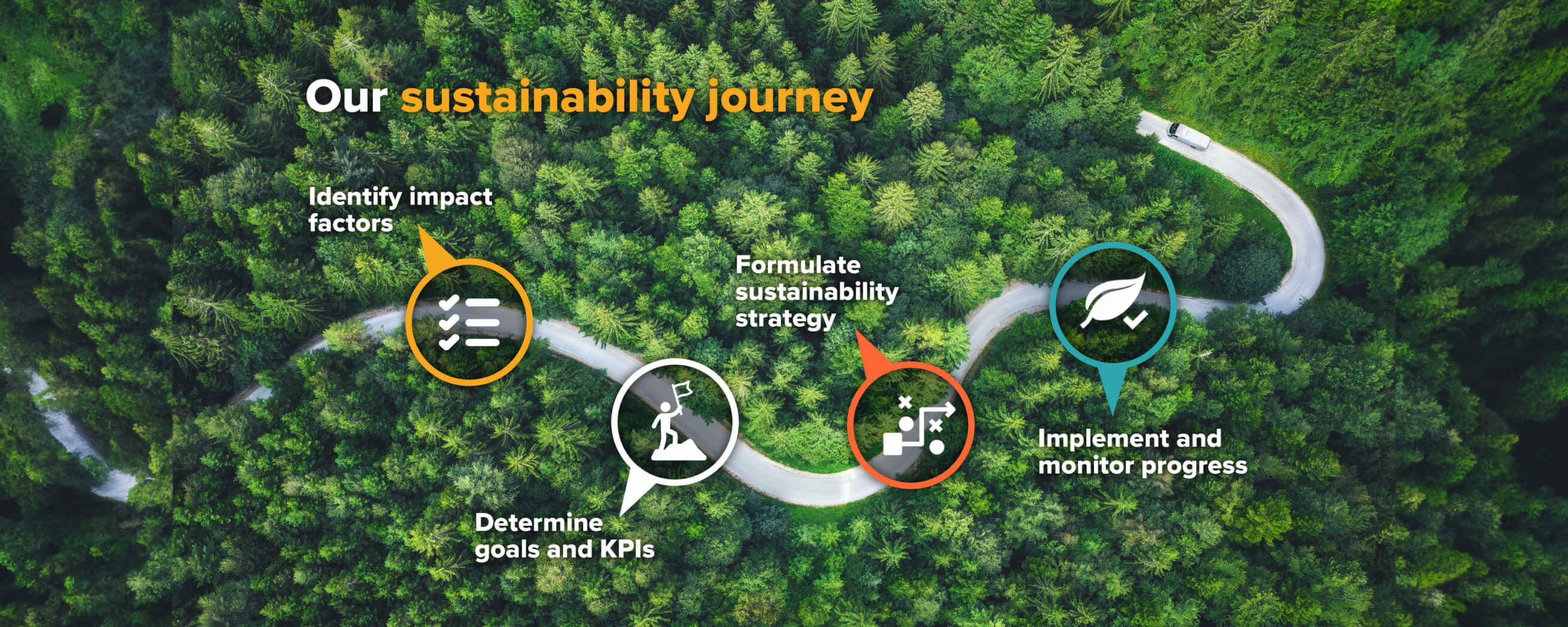Sustainability
Sustainability at Metro Supply Chain

We are committed to ensuring our operations are sustainable for future generations. So, we are focusing our efforts on reducing our emissions, supporting social equity, and embracing safe and welcoming workplaces to create a positive impact on our planet, people, customers, communities, and investors. As part of our governance framework, we will review and update our commitments annually.
Our commitments

Environmental
- Achieve net zero by 2050
- Reduce emissions in our owned Last-Mile fleet by 20%
- Include tracking in all new waste management contracts

Social
- Increase diversity in our management team with an initial focus on increasing the representation of women
- Achieve a 70% participation rate in a voluntary diversity identification survey
- Grow charity funding by 10% annually

Governance
- Ensure 100% of our team are aware of our anti-slavery policy by the end of 2023
- Increase participation of our employee survey to 75% within three years
- Improve our current loss time injury frequency rate (LTIFR) by 20% within three years
CAMSC Certified Diverse Supplier
As a minority-owned business, we join more than 1,500 diverse suppliers who are certified by the Canadian Aboriginal and Minority Supplier Council (CAMSC). To strengthen our diverse supplier network, we are also a CAMSC corporate member.

How we are meeting our environmental commitments
Our 2022 GHG emission baseline identified areas where we are making immediate emission reductions. Our approach aligns with industry standards, following the GHG Protocol and ISO 14064-1 methodologies.
Across our organization, we are actively taking steps to shrink our carbon footprint.
-
Adopting renewable energy by expanding our EV fleet and converting forklifts to electric
-
Reducing our energy output by using energy-efficient lighting and high-efficiency appliances
-
Reducing waste output by furthering our recycling programs and closely monitoring waste diversion
Learn more in The many ways we’re shrinking our carbon footprint.
How we are meeting our social commitments
We foster an environment that helps our team grow professionally and supports their physical and psychological safety. Believing everyone has the right to meaningful work, we are continuing to build an inclusive and equitable workplace.
Our commitment takes shape through a variety of initiatives and actions.
-
Supporting transparency with an open-door policy
-
Helping our team thrive with dedicated development programs
-
Partnering with organizations focused on gender justice
-
Hiring differently-abled team members
-
Donating our time and resources to local communities
How we are meeting our governance commitments
Comprised of leadership and a dedicated CSR Committee with representation across the company, our governance framework ensures sustainability is incorporated into our decision-making and actions and allows us to continually improve our impact.
We empower sustainable decision-making through inclusive governance.
-
Actively reminding team members of our anti-modern slavery policy
-
Monitoring and reporting at all levels of the organization to ensure accountability
-
Operating in full compliance with all applicable laws and regulations related to slavery, human trafficking, and forced labour
-
Empowering team members to take ownership of key initiatives that support our governance
-
Continuously improving our policies, procedures, and practices through policies and processes

Insight
The many ways we’re shrinking our carbon footprint
Supply chains are facing intense scrutiny as businesses look to lower their carbon footprints – and it’s easy to understand why. The supply chain and logistics sector now accounts for about 24% of global carbon emissions.